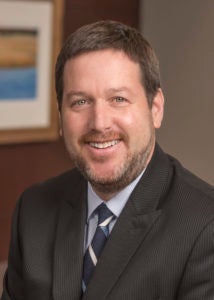About PACT
When patients experience harm due to healthcare, the stakes are incredibly high—for patients and families, healthcare providers, organizations, and liability insurers. The way these situations are handled can either heal or deepen wounds, rebuild trust or erode it further.
The Pathway to Accountability, Compassion, and Transparency (PACT) Collaborative is a learning community dedicated to helping healthcare organizations create a highly reliable process for responding to and learning from patient harm. While these programs go by many names—like Communication and Resolution/Reconciliation Programs (CRPs), CANDOR, or CARe—they all aim to ensure patients, families, and providers are supported after a harm event. These programs also promote transparent communication, facilitate learning and safety improvements, and offer compensation when appropriate.
The PACT Collaborative is modeled on the IHI’s Breakthrough Series Collaborative, which brings together organizations to test and measure practice innovations and accelerate the adoption of best practices. Over a year-long experience, organizations work together to build long-term success.
Why Join PACT?
Many organizations are exploring how to implement harm response programs, but the PACT Collaborative offers a unique and comprehensive approach. We go beyond traditional training by providing a structured, development curriculum with all of the support you need to successfully implement what you learn. As a PACT Collaborative participant, you’ll have access to:
- Innovative and comprehensive tools and resources
- A faculty of the leading experts in the field
- A robust community of peers
- Personalized coaching from a PACT faculty coach
- As step-by-step approach to simplify CRP implementation
With PACT, you’ll turn your principles into practice.
At the conclusion of the Collaborative, you will be invited to join the PACT Leadership and Innovation Network where you can connect and collaborate with peers across the country who support each other in sustaining their CRPs while advancing the CRP field.
The PACT Collaborative Experience
The Collaborative experience spans a year and includes six highly interactive virtual learning sessions, each held over two half-days. These sessions are a chance to experience the “all teach, all learn” dynamic, where you can share successes with other teams, interact with faculty, and plan for your next steps.
Between sessions, you’ll enter action periods where you can implement the best practices you’ve learned. You’ll also attend monthly check-ins with a smaller cohort of your peers and consult with your assigned faculty coach. This process is designed to help you accelerate your work and make meaningful progress over time.
The Power of PACT
The first three waves of the PACT Collaborative have already helped over 40 healthcare organizations across the U.S. achieve significant progress, including:
- Refining processes to ensure a consistent response to harm events.
- Breaking down departmental silos to improve collaboration.
- Developing programs to support providers, staff, patients, and families.
- Engaging patients and families to co-develop processes.
- Improving harm event identification and review processes.
- Gaining confidence in their ability to effectively respond to harm events.
CRPs are widely endorsed as a best practice by leading healthcare authorities, including the Joint Commission, the National Quality Forum, the U.S. National Steering Committee for Patient Safety, and the World Health Organization. Recent reports from the President’s Council of Advisors on Science and Technology (PCAST) and CMS also highlight the importance of reliably implemented CRPs.
Ready to Join?
Applications for the next PACT Collaborative are now open! Now is the time to launch or strengthen your organization’s CRP.
To learn more, watch our information session, download the PACT Collaborative Information Packet, check out our FAQ, or email Melissa Parkerton, PACT Director, at melispa@uw.edu.
Ready to apply? Complete the PACT Application here.
PACT Leadership
PACT Leadership:
Evan Benjamin, MD, MS, FACP

Dr. Evan Benjamin is Director of Community Innovation at Ariadne Labs, a joint center of healthcare innovation at Harvard School of Public Health and the Brigham & Women’s Hospital. He is associate professor of Medicine at Harvard Medical School and associate professor of Health Policy and Management at Harvard School of Public Health where he teaches health care systems, quality improvement and patient safety.
Dr. Benjamin was co-chair of the Massachusetts Alliance for Communication and Resolution after Medical Injury (MACRMI), a six hospital alliance in Massachusetts to promote communication and resolution programs. His research focuses on the impact of CRP on patient and provider experience as well as outcomes of cost and patient safety.
At Ariadne Labs, Dr. Benjamin helps to lead the projects and programs to design and scale solutions to improve healthcare delivery that relieve suffering and save lives globally. His work to improve transparency and reliability in healthcare has been recognized nationally.
Prior to coming to Ariadne, Dr. Benjamin was senior vice president and chief population health officer at Baystate Health, a five-hospital, $3B academic health system in Massachusetts where he led efforts to improve quality, safety, risk and population health for over 20 years. At Baystate, he co-founded the Center for Quality of Care Research and TechSpring, the health IT Innovation Center.
Dr. Benjamin began his career as an epidemiologist in the Indian Health Service and US Public Health Service in New Mexico.
Dr Benjamin is currently a board member on the UMass Memorial Health System in Worcester, Massachusetts and the Commonwealth Health Insurance Co. Previously he has held board positions at Mercy-Bon Secours Health, Baystate Health Insurance Co and the Food Bank of Western Massachusetts.
He received his BA with honors from Williams College, his MD from Case Western Reserve University where he was elected into the Alpha Omega Alpha honor society and his MS in Healthcare Delivery Science from Dartmouth College. He completed an internal medicine residency at Yale New Haven Hospital.
Thomas H. Gallagher, MD

Thomas H. Gallagher, MD, is a general internist who is Professor in the Department of Medicine at the University of Washington, where he is Associate Chair for Patient Care Quality, Safety, and Value. Dr. Gallagher is also a Professor in the Department of Bioethics and Humanities.
Dr. Gallagher’s research addresses the interfaces between healthcare quality, communication, and transparency. Dr. Gallagher has published over 120 articles and book chapters, which have appeared in leading journals including JAMA, New England Journal of Medicine, Health Affairs, Surgery, Journal of Clinical Oncology, Archives of Internal Medicine, Archives of Pediatric and Adolescent Medicine, and the Joint Commission Journal.
Dr. Gallagher is also Executive Director of the Collaborative for Accountability and Improvement, an organization dedicated to advancing the spread of Communication and Resolution Programs (www.communicationandresolution.org). In 2017, his work advancing Communication and Resolution Programs was recognized with the receipt of the John M. Eisenberg Patient Safety and Quality Award for Individual Achievement, presented by the National Quality Forum and The Joint Commission. He served as President of the Society of General Internal Medicine in 2017, and was recognized as a Master of the American College of Physicians in 2019.
Dr. Gallagher received his medical degree from Harvard University, Cambridge, Massachusetts, completed his residency in Internal Medicine at Barnes Hospital, Washington University, St. Louis, and completed a fellowship in the Robert Wood Johnson Clinical Scholars Program, UCSF.
Melissa Parkerton, MA
Melissa Parkerton is the Executive Director of PACT at Ariadne Labs. Her 30-year career in healthcare has always been motivated by a fascination with the way that people create change – as individuals, as team members, or as full organizations. She has supported individual change and transition both as a child and family therapist and as an executive coach. She has also focused on large scale change, serving as Research Project Director for the UCLA/RAND evaluation of Transforming Care at the Bedside. During her seven years with the Oregon Patient Safety Commission, she filled multiple roles. First she served as Collaborative Director, leading multiple break-through series collaboratives with hospitals, skilled nursing facilities, and dialysis facilities, supporting impactful, sustainable change related to infection prevention. She then had the honor of serving as Director of Early Discussion and Resolution, creating a new program mandated by state law to foster direct communication between patients and healthcare providers in the wake of medical harm and create an optimal environment for Communication and Resolution Programs. She also served as the Interim Executive Director, overseeing all day-to-day operations, and guiding the staff through a challenging transition.
From 2017 to 2019, Melissa lived in Bangalore, India where she worked with the Institute for Healthcare Improvement (IHI) and CARE India on a program to reduce maternal and neonatal mortality. She continues to serve as faculty for IHI.
Melissa is a graduate of Dartmouth College, has an MA in Applied Behavioral Science from LIOS/Bastyr University, and has completed IHI’s Breakthrough Series College and Improvement Advisor Professional Development Program as well as Prosci’s Change Management Professional certification.
Jeff Salvon-Harman, MD, CPE, CPPS
Jeff Salvon-Harman, MD, CPE, CPPS, Vice President, Safety, Institute for Healthcare Improvement (IHI), is a Certified Physician Executive, Certified Professional in Patient Safety and IHI Fellow who is resolute about creating Safety and Belonging for patients and the healthcare workforce. He provides strategic leadership in Safety with deep operational expertise implementing change initiatives and applying quality improvement methods. He is a recognized subject matter expert in high reliability, patient and workforce safety, Human Factors application to Root Cause Analysis, and system level management of quality and safety. Previously, Dr. Salvon-Harman was the Chief Patient Safety Officer/VP, Quality Institute and Medical Director of Infection Prevention and Control for Presbyterian Healthcare Services in New Mexico. He is retired from the US Public Health Service where he dedicated 20 years to the
Indian Health Service and the US Coast Guard in roles ranging from clinical service delivery to management and leadership. Dr. Salvon-Harman completed his residency in Family Medicine at Carilion Health System in Roanoke, VA after graduating from Tufts University School of Medicine in Boston, MA.
Lauge Sokol-Hessner, MD
Lauge Sokol-Hessner, MD, CPPS is a practicing clinician, educator, researcher, innovator, and leader in patient safety & quality improvement. He began his career as a full-time clinician, and while his work has since diversified, his time caring for patients and families, and working with other health care professionals, continues to ground and motivate him. He is a Clinical Associate Professor of Medicine and an attending hospitalist at the University of Washington (UW) & Harborview Medical Centers. His experience includes: operational quality & safety work as a former Medical Director of Patient Safety at Beth Israel Deaconess Medical Center in Boston; teaching communication skills to a wide range of health care professionals; and championing patient and family engagement, ethics, humanism, equity, and respect in health care. His vision is oriented toward building better learning systems and high reliability organizations by collaborating with patient & family advisors, clinicians, health system leaders, and other stakeholders.
As Associate Director of the Collaborative for Accountability and Improvement, and a Faculty Coach for the PACT Collaborative, he helps lead national work to sustain and spread more proactive, ethical, person-centered responses after harm events. He is also passionate about mentoring and is dedicated to developing the next generation of leaders in quality and safety: he is a former Harvard Medical School (HMS)-wide Program Director for the HMS/CRICO Fellowship in Patient Safety and Quality; a former co-course director and current guest lecturer for the HMS Masters in Healthcare Quality and Safety; faculty at the Institute for Healthcare Improvement; and a QI Mentor at the UW Medicine Center for Scholarship in Patient Care Quality and Safety. He completed medical school and residency at the University of Pennsylvania. He loves living in the Pacific Northwest and is proud to contribute to the health of its people through his work at UW.
PACT Staff:
Nicole Moore, MPH
Nicole Moore is the Director of Communications for PACT. She joined the Collaborative for Accountability and Improvement as Continuing Education Coordinator following the completion of her MPH from the Community-Oriented Public Health Practice program at the University of Washington. She also has a background in healthcare communication and marketing.
Tricia Vallabhaneni
Tricia Vallabhaneni is a Special Projects Manager at Ariadne Labs supporting a portfolio of projects. Tricia has eight years of experience in higher education, most recently serving as the Director of Academic Operations at Northeastern University where she oversaw program development and academic projects for the College of Engineering. Tricia holds a MBA and MEd from Northeastern University and is currently pursuing her EdD.
Organizations:
The Collaborative for Accountability and Improvement (CAI) is a program of the University of Washington that serves to radically accelerate the adoption of CRPs, particularly through education, training, and support. The CAI provides CRP content expertise.
Ariadne Labs is a joint center for health system innovation at Brigham and Women’s Hospital and the Harvard T.H. Chan School of Public Health that works to save lives and reduce suffering by creating scalable solutions that improve health care delivery for people, everywhere. Ariadne Labs provides expertise in designing, testing and scaling health systems innovations.
The Institute for Healthcare Improvement is a leading, globally recognized not-for-profit health care improvement organization that has been applying evidence-based quality improvement methods to meet current and future health care challenges for more than 30 years.
Participant Testimonials
“Many healthcare organizations believe that the right way to bring healing and resolution to patients and families when an unexpected and unwelcomed outcome occurs, is through honest, open and on-going communication. However, achieving that goal requires providing their staff with the training, tools and on-going guidance they need to be successful. But organizations don’t have to build these resources alone. The PACT Collaborative can help any organization achieve success. Whether the organization is just beginning this important work, or is well on its journey, the resources provided by the PACT Collaborative are invaluable now, and will continue to be so into the future. Being a member of the PACT Collaborative also brings with it the fellowship and support of the PACT member organizations and their professional staff. Our job together has really just begun.”
– Larry L. Smith, JD, Vice President, Corporate Risk Management Services, MedStar Health
“The PACT collaborative has proved essential to helping health systems build CRPs that work. The strength of the collaborative lies in showing organizations how to convert CRPs from a vision into practice. I’d encourage any organization seeking to implement a meaningful CRP to join this invaluable effort.”
– Allen Kachalia, MD, JD, Senior Vice President, Patient Safety and Quality, Johns Hopkins Medicine
“Participating in PACT during the Covid Pandemic was both a litmus test for our commitment to this work and ballast for it. I am confident that PACT helped our organization move the dial on this work during one of the most challenging times in healthcare.”
-Frank Korn, RN, MBA, CPPS, CPHRM, Director of Risk Management, Dartmouth-Hitchcock
“Participation in the PACT Collaborative has given our organization the knowledge and tools required to develop our CRP. The faculty and support staff are impressive and they have gone above-and- beyond to provide the professional support and guidance needed for our success. Participants selected by the PACT Collaborative faculty to enrich learning experiences were excellent and added depth and perspective to the numerous topics covered. Abundant resources (handouts, video recordings, etc.) were readily available for immediate use. The virtual platform allowed true collaboration with other healthcare organizations and the technology worked flawlessly. I highly recommend participation in the PACT Collaborative to any organization desiring to embark on the development of a CRP or wanting to enhance an existing program.”
– Sharn Devun, MSN, RN, CPHQ, Director Risk Management, Hendrick Health
Resources
PACT Tools
Learn More about CRP
BMJ Quality & Safety: Making communication and resolution programmes mission critical in healthcare organisations
JAMA Viewpoint: Another Medical Malpractice Crisis? Try Something Different
Communication and Resolution Programs: What Are They and What Do They Require?
The Impact of CRPs on Liability Costs
NEJM: Responding to Medical Errors — Implementing the Modern Ethical Paradigm
BMJ Quality and Safety: Disclosing medical errors: prioritising the needs of patients and families
Contact Us
Fill out our contact form below or email Melissa Parkerton, PACT Director, at melispa@uw.edu.




